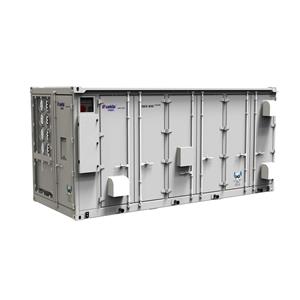Lead-acid batteries: you are familiar with the ‘old friend’, hidden what is not known secrets?
When it comes to lead-acid batteries, I believe we are not unfamiliar. From the earliest car starter batteries, to today's thousands of households throughout the electric bicycle, UPS power supply, lead-acid batteries have always been active in the figure around us. But do you know that this seemingly insignificant ‘old friend’ actually has a long history and unique charm?
A hundred years of inheritance and durability: the long history of lead-acid batteries
The invention of lead-acid batteries dates back to 1859, when French physicist Gaston Planté invented them. After more than 160 years, lead-acid batteries are still one of the most widely used types of batteries in the world, which demonstrates their technological maturity and reliability.

The durability of lead-acid batteries is largely due to their unique chemical structure. Lead-acid batteries, consisting of lead plates, sulphuric acid electrolyte and grids, undergo a chemical reaction during the charging and discharging process, releasing electrical energy. This mature chemical reaction system ensures the stable performance and long service life of lead-acid batteries.
Affordable, helping thousands of households: the economic advantages of lead-acid batteries
Compared with other battery types such as lithium batteries, lead-acid batteries are cheaper to manufacture and more affordable. This makes lead-acid batteries the ideal choice for electric bicycles, UPS power supply and other application scenarios, and also brings an affordable power experience to thousands of households.

In recent years, with the rapid development of lithium battery technology, lead-acid batteries are facing the challenge of lithium batteries in some areas. However, with the price advantage and perfect recycling system, lead-acid batteries still occupy a dominant position in many fields.
Environmental protection first, green development: the way of recycling lead-acid batteries
Lead-acid batteries are typical lead-containing toxic substances, so their recycling is crucial. In recent years, the state has introduced a number of policies and regulations to encourage and regulate the recycling of lead-acid batteries.
At present, the recycling rate of lead-acid batteries in China has reached more than 90%, which is among the highest in the world. Through effective recycling, we can not only reduce lead pollution, but also save resources and achieve green development.

Promising future, innovation and upgrading: the broad prospects of lead-acid batteries
Despite the competitive pressure from lithium batteries in recent years, lead-acid batteries still have a broad market prospect. Especially in the field of energy storage, lead-acid batteries are receiving more and more attention due to their advantages of low cost, long life and large capacity.
In the future, with the continuous progress of technology and the expansion of application areas, lead-acid batteries will continue to play its important role in bringing more convenient and cleaner energy to our lives.
Lead-acid battery, a seemingly ordinary battery, but contains a long history, unique charm and broad prospects. Understanding the story of lead-acid batteries has given us a deeper understanding of this familiar ‘old friend’. We believe that in the future, lead-acid batteries will continue to play an important role in bringing cleaner and more convenient energy to our lives.



